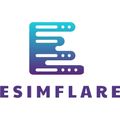GoMoWorldは1枚のeSIMを使って170カ国以上でインターネットを利用できるサービスを提供しています。一度eSIMをインストールすれば、世界中どこでも繰り返し利用可能です(毎回新しいeSIMをインストールする必要はありません)。7日間で3.99ユーロからの透明な価格設定で、GoMoWorldは世界中でつながるための、手間なくコスト効率の良い解決策を約束します。

GoMoWorldは1枚のeSIMを使って170カ国以上でインターネットを利用できるサービスを提供しています。一度eSIMをインストールすれば、世界中どこでも繰り返し利用可能です(毎回新しいeSIMをインストールする必要はありません)。7日間で3.99ユーロからの透明な価格設定で、GoMoWorldは世界中でつながるための、手間なくコスト効率の良い解決策を約束します。
プロモコード
キリバス向けGoMoWorld eSIMデータプラン
よくある質問
GoMoWorldはキリバス向けに無制限データeSIMを提供していますか?
GoMoWorldではキリバス向けに無制限データプランは提供されていません。利用可能なプランは固定容量で、最大で26GBまでとなっています。
26GBプランは30日間有効で$35.88 USD、17GBプランは$23.92 USD、8GBプランは$13.15 USD、1.7GBプランは$4.77 USDと価格が設定されています。容量が大きいほど単価は安くなるため、長時間のデータ利用や動画視聴などを重視されるご利用者にとってはコストパフォーマンスが高い選択となります。
GoMoWorldはキリバス向けに電話番号やSMS付きeSIMプランを提供していますか?
GoMoWorldはキリバス向けに電話番号付きやSMS機能付きのeSIMプランを提供していません。すべてのプランはデータ通信専用です。LINEやFacebook Messenger、iMessageなどのVoIPアプリはデータ通信だけで通話やメッセージを利用できるため、電話番号やSMSがなくてもコミュニケーションは可能です。
GoMoWorldはキリバス向けにいくつのデータプランを提供していますか?
GoMoWorldはキリバス向けに国別プランとして定量データプランを4種類提供しています。これらのプランはデータ容量が1.7GBから26GBまで、価格帯が$4.77〜$35.88、利用期間が7日〜30日です。さらに、テレタリングが許可されている仕様があり、複数国プランは存在しません。
Summarized by Gen AI. Last updated:



